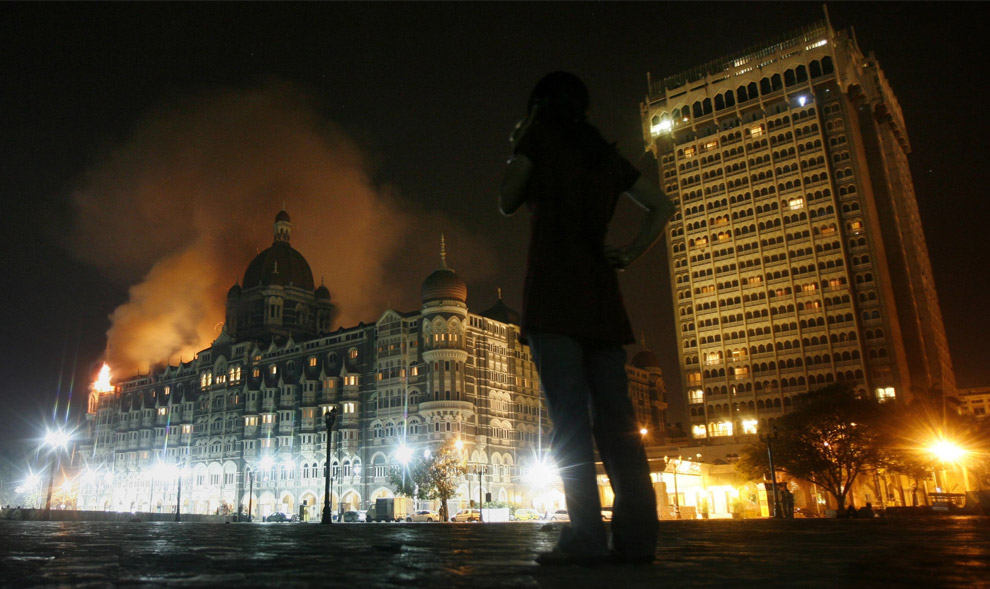Today is the 10th anniversary of 26/11 Mumbai Terror Attacks. It was on this day that 10 Pakistani terrorists armed with sophisticated weapons unleashed mayhem across the city of Mumbai claiming the lives of 166 innocent people and injuring more than 300. While one terrorist Ajmal Kasab was captured and hanged, the others were gunned down by security forces. The Mumbai terror attack went on for 60 hours, starting from the evening of November 26 to the morning of November 29. These four days were marred with mad violence, barbarity, cruelty and terrorism. They also exposed how irresponsible, immature and propaganda driven Indian media is. The media provided a live broadcast of the dastardly Mumbai terror attacks, as well as of any plan that security forces were planning to execute. The handlers of terrorists operating from Pakistan had easy and live access of all the events that were unfolding in the city. Media made their job easy.
Media is considered the fourth pillar of democracy. The pillar was expected to display some sanity and maturity at a time when safety and security of the nation was in danger. But, when dastardly attack was underway, Indian media indulged in the mad race for viewership/TRPs, it resorted to sensationalism. All the ethics of journalism took a backseat; reporters were doing a LIVE broadcast of events from various strategic positions. In their lust for TRP, some media houses even revealed the positions of NSG commandos, number of NSG commandos, and how they were planning to enter inside the building by various methods such as by fast-roping from a hovering chopper. Handlers of terrorists used the crucial information which Indian media was broadcasting with all enthusiasm, to alert their terrorist brethren. The handlers of terrorists were well aware of the next move of Indian security forces all because of irresponsible and immature Indian media. Media houses like BBC were reluctant to call terrorists as terrorists; they instead used the word ‘gunmen’ for them.
The apex court also observed that Indian media’ role during the 26/11 was irresponsible and dangerous. The SC stated, “The collaborators sitting in their hideouts across the border came to know about the appellant being caught alive from Indian TV: they came to know about the killing of high ranking police officers also from Indian TV.” The court also said that live visuals of operations of security forces aired by electronic media not only made the task of the security forces exceedingly difficult but also dangerous and risky.
The SC also said, “They have served no national interest or any social cause. Reckless coverage gave rise to a situation where on the one hand the terrorists were completely hidden from the security forces. All operational movements were being watched by the collaborators across the border on TV screens and being communicated to the terrorists. The goriest details, were shown live on Indian TV from beginning to end, almost non-stop.” It further said,” All the channels were competing with each other in showing the latest developments on a minute-to-minute basis, including the positions and the movements of the security forces engaged in flushing out the terrorists, is what the Supreme Court had also observed. Freedom of expression, like all other freedoms under Article 19, is subject to reasonable restrictions.”
The SC further added, “An action tending to violate another person’s right to life guaranteed under Article 21 or putting the national security in jeopardy can never be justified by taking the plea of freedom of speech and expression. The television channels aiming to shoot up their TRP ratings were not serving any national interest. Instead they put their commercial interests above national security.”
However, the larger than life journalist Barkha Dutt decided to sing a different tune. In an interview, she had said, “However on 26/11, I would like to add that there were some unwitting mistakes made by all of us as journalists. We didn’t calculate that there were handlers monitoring our broadcast in real time, no one from the government told us either. When the advisory did come, we were 70 hours into the operation; by that time we as an organisation were doing a 15 minute delayed broadcast. In Mumbai, we followed the same protocol that we followed before for terror encounters – there was no notion that a third agent in another country was monitoring us. So 26/11 was a moment of learning, an unwitting set of mistakes made by entire industry – not one or two individuals. I also wish that there was greater communication between the government and the editors at that time – one phone call is all it would have taken and we would have had an immediate delay in broadcast.”
So, basically she needs government to tell her how to do her job responsibly?
Today the nation is observing 10th anniversary of Mumbai terror attacks and in these 10 years media has not learnt any lessons, and it continues to display its immaturity time and again with matters pertaining to national security. Irresponsible journalism of Indian media was evident during the Gurdaspur and Pathankot terror attack, Doklam issue, and also in the case of Kulbushan Jadhav. Most of the Indian media still puts commercial interest above national interest.
